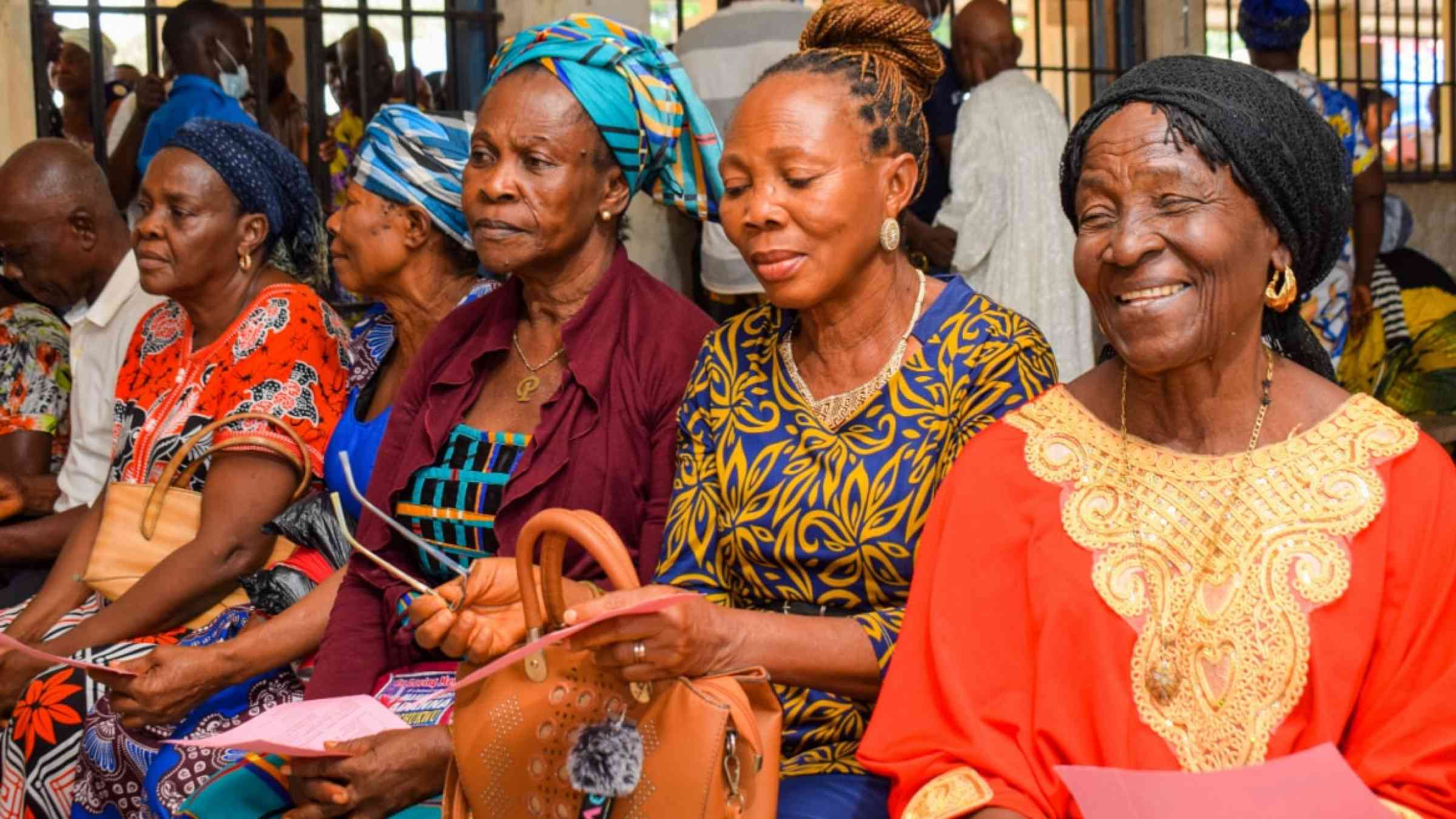Empowering women and girls with disabilities: nurturing resilience and inclusion in the face of climate change

By forming groups and facilitating activities that enhance livelihoods, the church aims to foster sustainable growth and empower these individuals. During the visit, participants were given the opportunity to share their experiences, challenges, and insights, shedding light on their understanding of climate change and its impact.
Understanding climate change
The women and girls with disabilities expressed their understanding of climate change through their perspectives. They highlighted the consequences of excessive rainfall, such as destructive floods, soil erosion, and landslides. Insufficient rainfall leading to low agricultural productivity was also mentioned. They also emphasized the pressing issue of limited land availability, which compounds the challenges faced by their communities.
Enhancing crop yields
When asked about strategies to improve crop yields amidst climate change, the women and girls with disabilities emphasized the need for training in modern agricultural techniques. They advocated for access to fertilizers, knowledge of top dressing, and measures to prevent soil erosion. Additionally, they emphasized the significance of tree planting in environmental conservation, citing the successful cultivation of avocados, plum trees, and lemon trees.
Role of table banking
For women and girls, agriculture serves both as a means of sustenance and economic empowerment. With limited land resources, most crops are cultivated for personal consumption. Surplus produce is sold in the market, and the resulting funds are channeled into table banking, enabling them to secure loans for additional projects and necessary purchases.
Government involvement
The participants expressed their concerns regarding the government's lack of involvement in climate change adaptation and support for individuals with disabilities. They called for increased training in modern agriculture, provision of resources such as fertilizers and seeds, and engagement with organizations specializing in agriculture. Furthermore, they stressed the importance of the government including women and girls with disabilities in decision-making processes and disaster management initiatives.
Amidst these challenges, the Friends Church in Burundi and the Catholic Church have played a pivotal role in empowering women and girls with disabilities. Through their programs, policies, and infrastructure, these churches have provided support in the form of table banking groups, food supplies, and medication. They have also encouraged socialization, skill development, and education for children with disabilities, fostering a sense of inclusion and belonging.
Audrey Mugisha and Solange Misabwe highlighted the significance of hosting a national dialogue on disability-inclusive climate change policies and programs.
Mugisha noted that, before the national dialogue, persons with disabilities were excluded from decision-making processes related to climate change. However, this dialogue provided a platform for them to express their views, share their experiences, and discuss their challenges with the government and other stakeholders. She explained, "The national dialogue was an opportunity for people with disability to explain themselves about their inclusion in climate change." It also served as a means for individuals to highlight their existing programs, such as tree planting initiatives, which contribute to climate change mitigation.
The "Her Resilience Enabled Project" formed a crucial part of the dialogue, focusing on enhancing the resilience of women and girls with disabilities to climate change impacts. The project's objectives encompassed sensitizing decision-makers on disability-inclusive climate change policies, engaging in dialogue regarding ongoing legislative processes, and developing actionable strategies for effective inclusion. By achieving these goals, the project aimed to influence the development and implementation of climate change policies and programs in Burundi.
Misabwe emphasized the transformative potential of the dialogue, stating,"The government will be aware of the problems facing girls and women with disabilities and thus collaborate with organizations representing persons with disabilities in policy formation and implementation.”
In envisioning the dialogue's impact, Mugisha highlighted the importance of knowledge acquisition and participation for women and girls with disabilities. Through the dialogue, they gain insights into existing climate change policies and programs, engage in decision-making processes, and share their challenges and achievements. Furthermore, it facilitates coordination between organizations, government bodies, and stakeholders, enabling effective collaboration in creating inclusive policies and programs.
Looking ahead, the national dialogue is expected to influence the development and implementation of climate change policies and programs. Decision-makers and organizations must collaborate with women and girls with disabilities, empowering them and involving them in the process. By addressing challenges such as limited education, providing capacity-building opportunities, and promoting ownership of initiatives, a more inclusive and sustainable future can be fostered.
The visit to Nyabihanga, Gitega Province, shed light on the strength, resilience, and determination of women and girls with disabilities in the face of climate change. Their insights underscore the importance of inclusive programs and the need for collaboration among government entities, organizations, and communities.